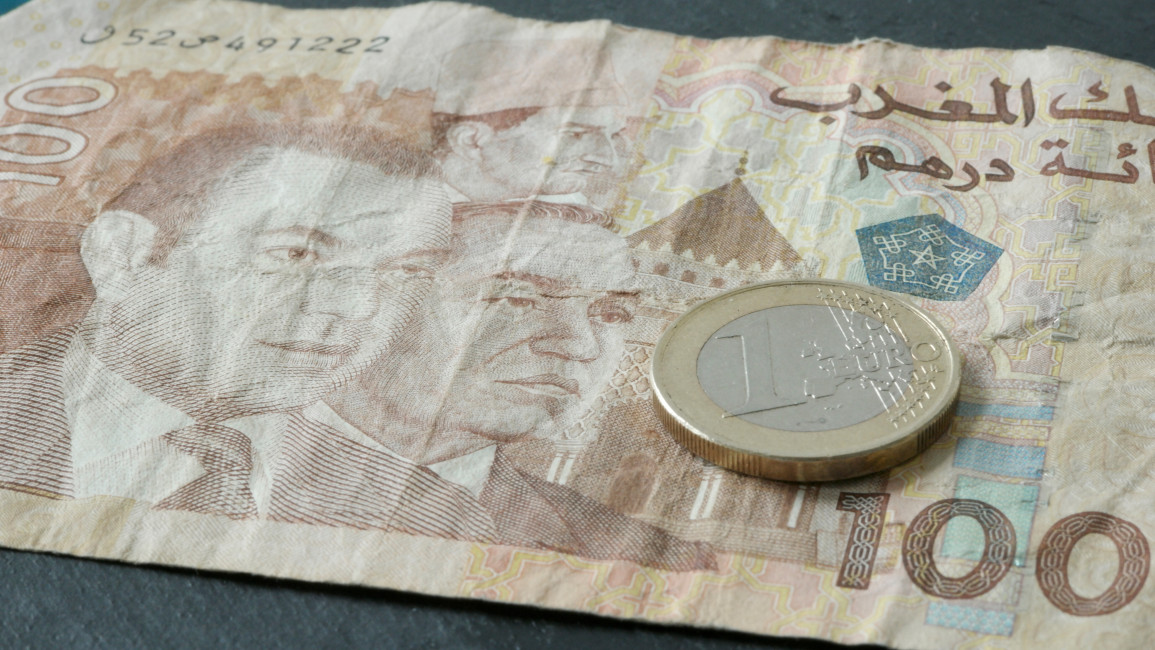Moroccan Central Bank denies MAD nosedive after Google glitch
The Moroccan central Bank (BAM) has denied the Moroccan dirham (MAD) nosedive after a Google glitch showed the currency losing around 70% of its value, causing mass panic in the country.
Around 7 p.m. GMT on Wednesday, the world's largest search engine Google started showing that the Moroccan currency declined to 18 MAD per 1 euro and 17 MAD per 1 US$.
For the past months, the Moroccan dirham has kept a stable trade rate at around MAD10 per 1 US$.
After two hours of panic, the glitch was corrected with the top Google search showing again that the real value of the Moroccan dirham against the US dollar is set at 10.17.
Bank Al-Maghrib, the Moroccan central bank, released Wednesday night a press release denying the nosedive calling on citizens and news websites to use the bank website to check the real value of MAD.
The Google glitch has caused quite a stir on social media, with users wondering what unexpected event could have struck the country’s economy to cause its currency to plummet.
Hey @Google 👋🏻
— YaSmiNe Lamrhaouar (@YLamrhaouar) January 18, 2023
Moroccans 🇲🇦 were surprised this afternoon by an incomprehensible change in the value of the Moroccan dirham against the dollar💵 & euro💶in your search engine. Please rectify the problem as soon as possible. The matter is urgent and requires clarification.
Thanks pic.twitter.com/Ak42KrOQyk
In theory, such an event is unlikely to happen as the exchange rate of Morocco’s currency is decided by the BAM, and it is only allowed to deviate from said exchange rate by 2.5%.
The North African country first abolished its fixed currency exchange rate for the dirham to a more flexible ±2.5% rate in 2018 in a bid to liberalise the economy and enrich openness, but under risks of fluctuating demand and supply pressures.
The BAM refused the IMF's proposal to allow its currency to fluctuate further in October 2022.
Nearly 90% of the Moroccan economy is made up of micro-businesses, which are not prepared to stand the implications of any further exchange rate fiscal reforms, according to Bank Al-Maghrib.
The IMF argued that a more flexible exchange rate will help the Moroccan economy to preserve reserve buffers and competitiveness, as the economy will be better positioned to absorb external shocks.
"The reforms can't take place while the country is battling with economic crises that are exerting significant pressure on the state budget and the economy as a whole," said the BAM governor in October 2022.
The company of Google has yet to comment on yesterday's glitch.
The Moroccan observatory of digital sovereignty (OMSN), a Moroccan think-tank, has called on Google to clarify its position on the incident, "which affects the digital sovereignty of Morocco, asking the company that such things should not recur," said the Moroccan think tank in a press release on Wednesday night.



